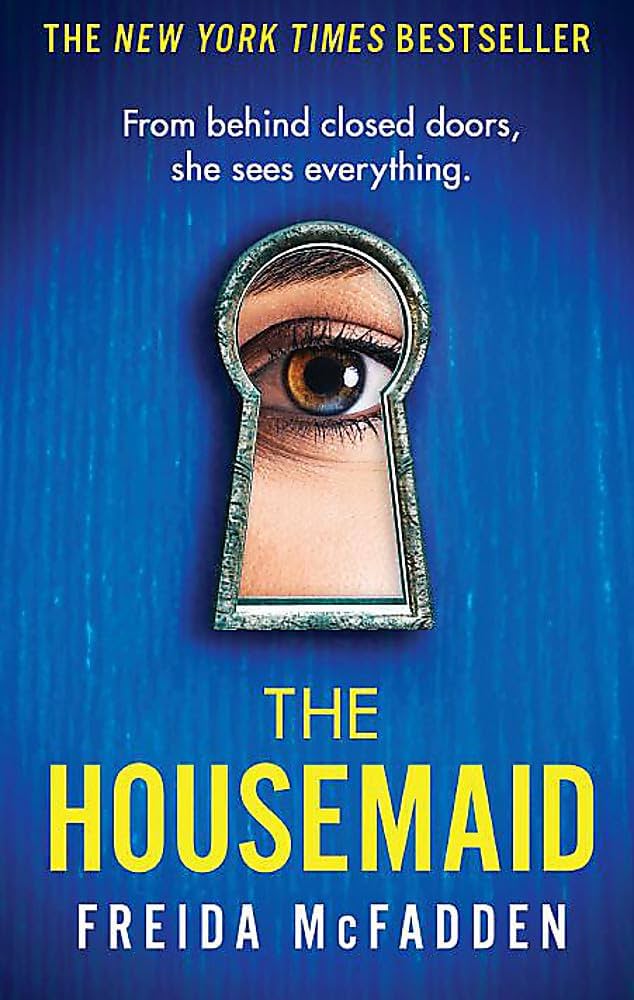Chapter 58
byChapter 58 opens with Nina stepping into a growing sense of unease as she arrives at Andrew’s house, feeling a deep knot of dread settle in her stomach. The air around her seems to thicken, pressing down on her as she takes in the familiar yet altered surroundings. Her instincts are screaming that something is terribly wrong, but she cannot pinpoint exactly what has shifted. Despite having sworn to herself that she would never return unless she was certain her daughter Cece was fully protected, Nina finds herself standing at the door of the very house she vowed to avoid. Her trust is placed solely in Enzo, who she hopes is keeping Cece away from Andrew’s manipulative grasp. The neighborhood, once a place that might have offered refuge, now feels more like a pit of deception, filled with people who are easily swayed by Andrew’s charm and influence. The constant undercurrent of suspicion about the people around her makes Nina feel as if she’s walking through a minefield, unable to know who, if anyone, she can truly trust.
As Nina parks discreetly behind the house, trying to stay hidden from any unwanted attention, her plans are interrupted by Suzanne. Suzanne, once someone Nina could confide in, now serves as a painful reminder of betrayal, her words thinly veiled with concern but laced with an unmistakable hint of gossip. She pretends to be casually interested in missed social events and neighborhood rumors, but Nina sees through her act. Suzanne’s subtle inquiries seem like nothing more than fishing for information, trying to assess Nina’s situation and any vulnerabilities she can exploit. Nina, though weary, keeps her composure and deflects Suzanne’s probing questions with practiced ease. She manages to maintain the facade of stability, hiding the turmoil beneath the surface, though the gossip surrounding her—depicting her as either abandoned or wrongfully accused—lingers like a shadow. These moments of tension underscore the growing isolation Nina feels, with even the people she once trusted now acting as obstacles to her pursuit of clarity.
Upon entering the house, Nina is hit by an overwhelming sense of isolation and the emotional weight of estrangement. The home, which once provided comfort and a semblance of normalcy, now feels foreign and empty, as though it no longer belongs to her. Every action she takes—whether it’s ringing the doorbell to announce her return or cautiously stepping into the house—is met with silence, amplifying the emotional void that surrounds her. The lack of any response from Andrew only adds to her mounting anxiety. She notices his BMW parked in the garage, but its presence only fuels her uncertainty. If he’s there, where could he be? And why is there no sign of him? The garage, once a place of familiarity, now holds more questions than answers. She is left to wonder whether Andrew and Millie are hiding, or if something else is at play, but with no clear direction, her mind races in search of explanations. This unsettling silence amplifies the tension Nina feels, as she grapples with the possibility that things may never return to the way they were.
This chapter captures the suffocating weight of Nina’s emotional and psychological turmoil, showcasing her struggle to navigate a world where every corner seems clouded with betrayal and distrust. As Nina tries to make sense of the reality she finds herself in, the narrative delves deeper into themes of isolation, disillusionment, and a woman trying to reclaim control in a world that seems determined to strip it away. Nina’s path forward remains uncertain, but her determination shines through despite the overwhelming obstacles in her way. The fractured state of her home and the fragmented relationships around her paint a portrait of a woman who is caught between the past and the future, struggling to reconcile the two while searching for any glimmer of hope in the uncertainty. The chapter ends with Nina poised on the edge of a revelation, each unanswered question pushing her further into the unknown.


